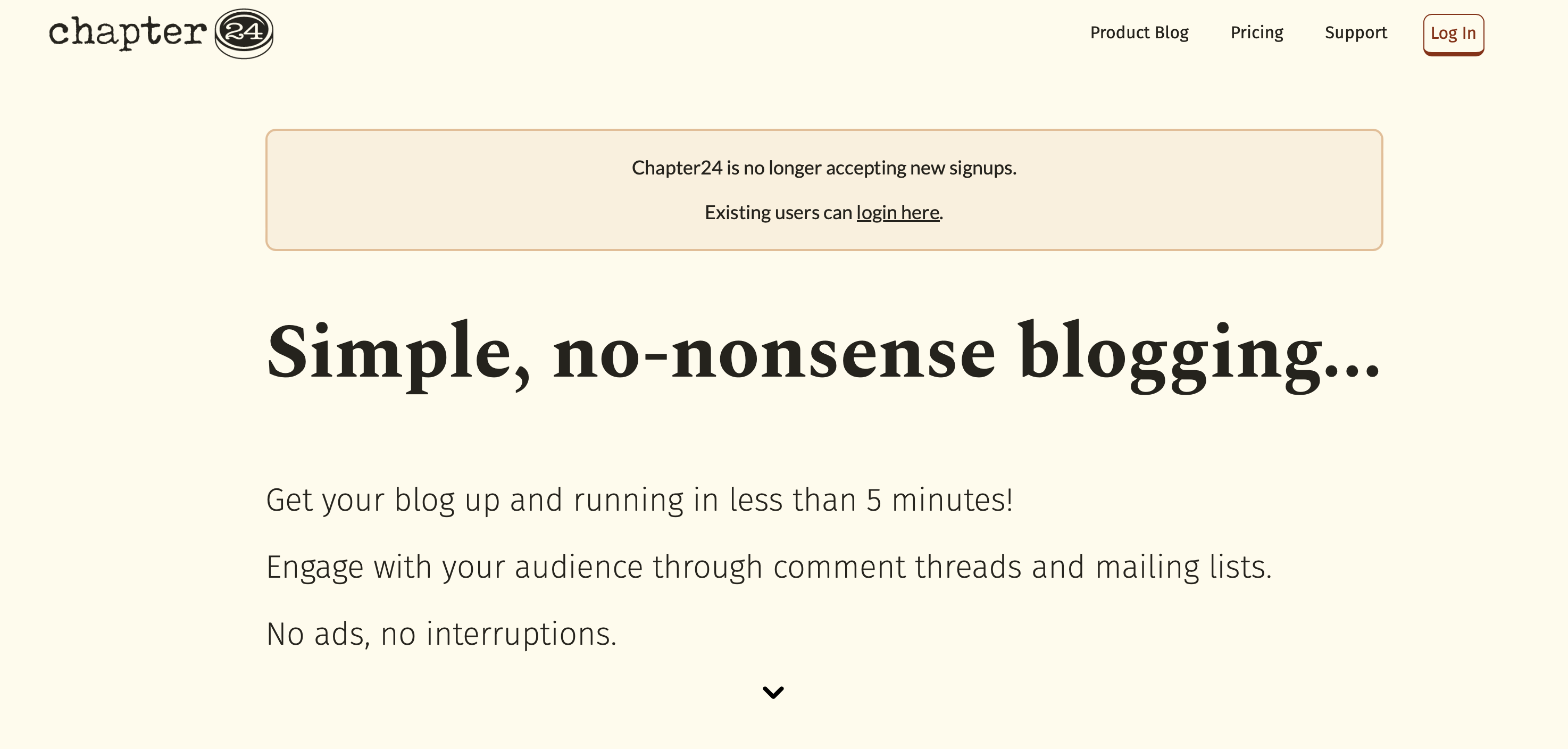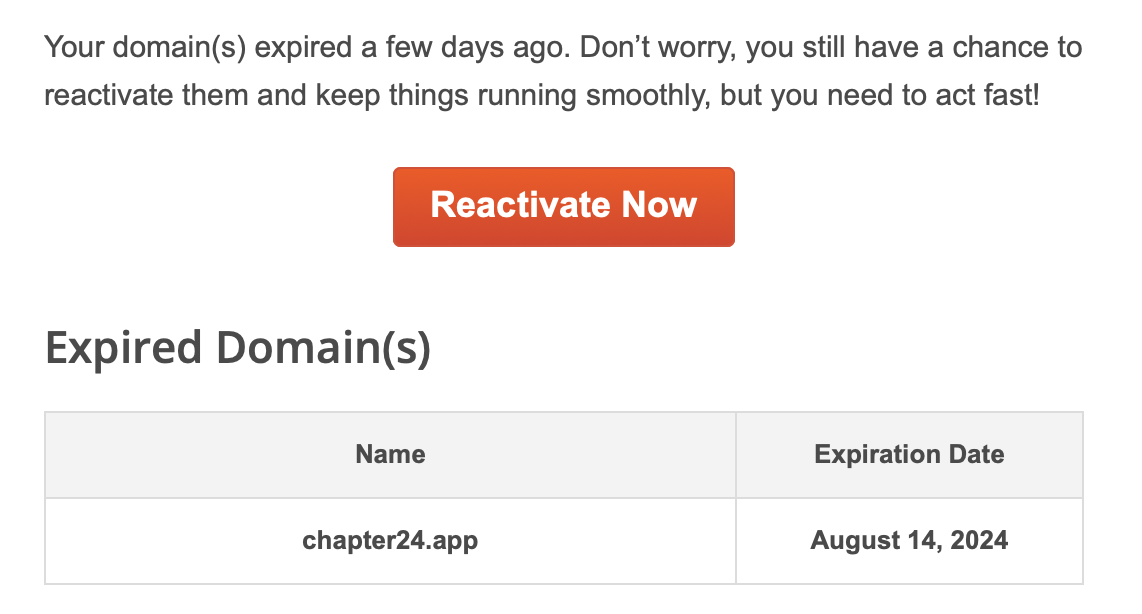Decommissioning my first commercial product
posted by Ayush Newatia
4 September, 2024
In 2020, as a vehicle to learn Rails, I built my first commercial product called Chapter24. It was a super simple blogging platform; my response to the enshittification of Medium. It didn’t live very long. I never got any paying users and I closed sign ups in October, 2021.

There’s no shortage of articles about people’s successes, but I wanted to write this post to share this “failure” to provide a counter-point.
Simplicity and privacy are core tenets in everything I build. I’d wanted to write a technical blog for a while but just couldn’t be bothered with the faff to set one up. Medium came along and I loved it in the early days. When I was an iOS developer, I wrote some technical articles on it as well. Inevitably for a VC-backed company, it stopped prioritising its users and became utterly crap in the pursuit of growth … whatever that means.
The best way I learn is by doing. To teach myself Rails, I thought I’d build a blogging app that was as simple as Medium. I went through with it and spent a few months in 2020 building Chapter24 and being absolutely certain it would be a commerical success. As mentioned earlier, it got no paying users.
I was completely delusional about how difficult selling SaaS subscriptions actually is. I believed, and still believe that Chapter24 was a great product … seemingly just one that no one wanted to pay for. It was also targetted at non-technical people and as an indie developer, it’s very difficult to reach that market.
Being my first product, the code was utter shambles which led me to call it quits just a year into the product’s life. I continued to use the app myself for a couple of years until finally, earlier this year in April, I migrated the blog you’re reading to Bridgetown and decomissioned Chapter24. I no longer own the the domain name either. That chapter (forgive the pun) is closed.

Apart from a strong product vision, I had nothing else. It takes a lot more to make a commercially successful product. In every measurable way, Chapter24 was an unmitigated failure and at the time, it really hurt. But what if I reframed my perspective?
Solstice, one of my favourite bands, usually play to audiences of 100-200 in dingy venues. In 2023, they played to 20,000 people at the Cropredy Festival. Inevitably, with an audience that size, a loud minority made their negative feelings known. Instead of letting these comments deflate them, they turned the tables on them.
You can now buy Solstice T-shirts with comments like:
“Bloody Awful…Are They A Cult?”
“Discordant Female Wailing”
“Self-Indulgent Nonsense”
I’m the proud owner of two such T-shirts. I love how they took something negative and turned it into a positive. These T-shirts are incredibly popular with their fans.
Every time I get to down on myself about the perception of success, I use this as inspiration to reframe my point of view.
Building Chapter24 and taking it to launch was a fantastic experience. It was also instrumental in helping me land my first Rails freelancing gig. There’s nothing that enhances your credibility more than having work in the public eye.
The muscles I developed and lessons I learned while building Chapter24 served me really well when I started work on my next app, Scattergun, and my book, The Rails and Hotwire Codex.
With both these products, I went in with the mindset that launching it is the measure of success. If the product makes it to market, it is a success. Anything else is a bonus. This mental reframing is how I stop myself from giving up on a product.
It’s difficult to do, but I’ve found this attitude extremely liberating. It’s the sole reason I was able to complete and launch my book without giving up. Even with hindsight, there’s not one thing I’d change about Chapter24.
I find that focusing on the process instead of the outcome not only removes the pressure of chasing success, it also just makes it more fun. Whether this translates to any commercial success remains to be seen, but hey, fun is good!